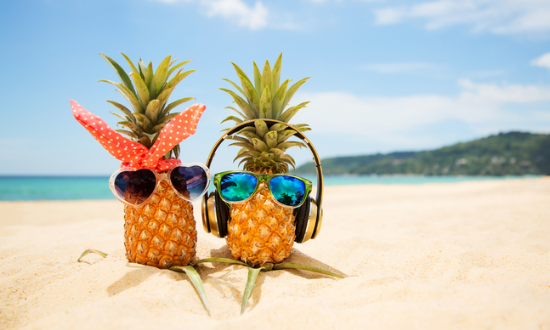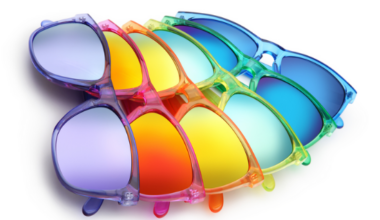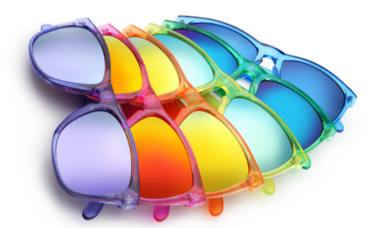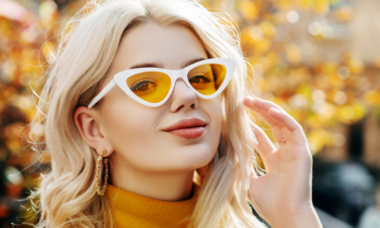Wishing to travel to Caribbean island, backwaters of Kerala, the coral island of Phuket or Laucala island of Fiji, or some other beach destinations?
Surely you must have done all your research from places to visit, resorts or destinations. Once done with booking comes the most exciting part pre-travel shopping.
Running down your beach checklist cannot miss out on swimwear, beach slippers, sunscreens, and not to forget sunglasses.
The only thing to take home from any travel is memories, time-lapse videos, family photos and most favorite selfies. For best of memories you pick best of accessories to take with you. While every other accessory you wear to flaunt or style, your sunglasses will not just add to your style but most importantly they are there to protect your eyes.
Just like the clothes you wear depend on the weather conditions similarly, your eyewear should also be picked depending on weather conditions. Climate near sea coast is clearly not same as hilly regions, valleys or plateaus.
Most of us tend to buy sunglasses out of trend or at a price that is dime a dozen without much information on its properties. Different sunglasses have different features to protect your eyes and for better vision. Some sunglasses aim to reduce glare while some provide UV protection.
What you need to wear depends on where you wish to travel.
Areas like the seacoast experience humid climates. Due to the large spread of water, reflectance is also high. Let us explain how.
Different surfaces have different reflectance. Incident rays touching any surface are either refracted into another medium or reflected back into the same medium. This transmission depends upon the surface.
Surfaces like land or grass have less reflectance. We can say it is able to absorb light. Wherein surfaces like a mirror, water, or ice have high reflectance meaning light rays travel back and spread at different angles. This dispersion causes glaring.
Often when you are on beach and Sun is shining bright you feel very difficult to see with naked eyes. Your pupil contracts restricting excess light, your eyebrows would shrug and you start to feel the needs of sitting under shady light. This happens because of the light reflecting from water disperses in all directions causing high reflectance in the atmosphere.
Here is a guide to beach sunglasses to prevent your eyes from glaring so that you can make the most of your travel you so longed for.
Polarized Sunglasses
Light coming from origin vibrates in all directions. When it reflects from surface like water or sand it vibrate with big waves in single direction. This wave is called a Polarized wave.
These waves are present in atmosphere you live in your daily lives but in areas like beaches where reflectance is high, it becomes hard to achieve proper vision.
Polarize sunglasses are designed to reduce glare. It naturally gives a cooling effect to your eyes.
It is designed such that it can block light horizontally. This is because it has horizontal blocks on its film-like filter. It cuts the polarized waves entering your eyes letting you have sharper vision with better contrast and without any glare.
If you have a polarized sunglass you can try this at home. Try looking at a bulb naked eye. Now put on your polarized glasses and look at the bulb. With naked eye you will not be able to see the body of the bulb because of light and now feel the difference after wearing polarize sunglasses. You’ll not just be able to see the bulb but you’ll feel relaxation in your eyes. This way you can also test if your sunglasses are polarized or not.
Color of sunglasses
When light travels through a medium its properties changes such as frequency, wavelength, and speed. The color of the lens reduces visual acuity to a certain extent. This is a natural science. Light when touches a medium of it gets reflected back in the original medium. Not all rays are able to transmit through the surface.
Similarly, the color lens also reduces light transmission to some extent but at places like the sea coast, this helps greatly in achieving comfort vision if you choose the right color as each lens color has a unique property.
The brown color and the amber color sunglasses have some unique features to support accurate vision on beach. These colors reduce glare, adds to color contrast especially in the green and blue background hence vision clarity is higher. It adds color contour which adds depth to the objects in the visual field.
The red color is most commonly used by cricketers. This is because it allows all the rays to transmit equally and also there is zero distortion of light. This gives superior clarity and glare-free sight.
Red, brown or amber coated with ARC on both the side of the lens will increase light transmission taking it nearer to 100 percent.
UV protector
Most sunglasses are made of polycarbonate lenses which are by default UV protectors. But before buying you must read the properties of the lens if buying online or ask your optician if buying from store.
Crown glass materials (non-fiber) are not by default UV protectors hence external coating would be required. This coating may wear of over a period of time or if lens gets scratches on its surface.
Mirror coats
Mirror coats sunglasses definitely make you stand out in the crowd. These are hot fashion sunglasses and most preferred for beaches. The mirror is a shiny surface and hence its reflectance is high. It greatly helps in reducing glare and much of glare causing light to get reflected back. This gives a cooling effect, glare-free vision, and amazing selfies!
Mirror coat along with polarizing filters does wonders. The most commonly seen mirror coats are blue and silver. Other shades are also available such as orange, gold, pinkish-red, green, and black. Some might look too flashy but on a beach, they are all good to go.
Transitions
If you do not want to wear sunglasses yet protect your eyes from UV than transitions are also a great option and it provides 100% UV protection. You can get transition on your spectacle lenses. It comes with Essilor lenses which are the world leader in lens manufacturing. They become completely dark when UV rays hit upon the lens and it quickly fades out when taken away from UV light such as indoors. These are not just good for beach but even in your daily it keeps UV from damaging your eyes.
To conclude, you have a plethora of eyewear choices for the beach. Hope this guide helps you in making an informed sunglass purchase.








